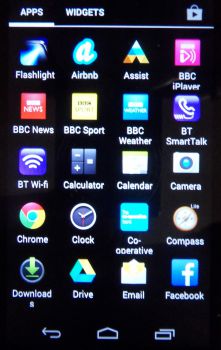New app that may spot signs of psychosis relapse
By: Abigail Christine Wright
Last updated: Thursday, 5 November 2015

Spotting signs of a psychotic episode is near is difficult. But succeeding means heading off a period of immense personal difficulity and costly NHS treatment. Emily Eisner, a MRC PhD student at University of Manchester, is investigating how smartphone technology might help identify when people are at risk of an episode.
This smartphone app is called 'ExPRESS'. The aim is to help people track their own warning signs of relapse by asking them a series of personalised questions every week and sends this informaiotn to their care team. If warning signs are above critical, the patient and care team can take action to prevent relapse.
Symptoms may be:
- Being hypersensitive to sounds
- Shapes distorted
- Increased indecisiveness
- Difficulty multitasking
- Problems understanding/thinking of common words
- Feeling disconnected
- Things seem bigger or smaller than usual
These are 'basic symptoms' e.g. noticing the clock looked a bit bent, noticing the lights were brighter than noormal. Both odd experiences of their mind playing tricks, but signs they were becoming unwell.
'Basic symptoms' have already been used to predict first episode psychosis, this app extends this and questions whether they predict relapse. These basic symptoms may be experienced on a similar level as other warning signs e.g. insomnia, worry, mood changes.
Patients will be asked to keep track of their basic symptoms for 6 months using the ExPRESS app to assess the relationship between increased basic symptoms and likelihood of psychotic episode.
This app could prevent relapse by early detection and prompt action.

